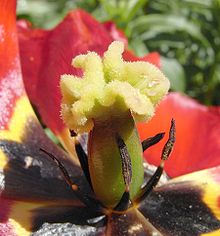Subscribe to:
Post Comments (Atom)
skip to main |
skip to sidebar
garden fountain design,fountain unique,garden fountain,small garden fountains,solar garden fountains,japanese garden fountain,garden rock fountains
Popular Posts
-
Water features are a delightful addition to any garden. Garden fountains, in particular, engage the senses with the soothing sound an...
-
1. Tristan da Cunha : Island of the World's Most Isolated The island is located in the southern Atlantic Ocean , 2816 km ...
-
L ooking up at the paper shades nestled atop my favorite etherea l turquoise color one can imagine staring up at the sky through the cloud...
-
Well, this is easily the most beautiful celery I've ever seen. My artist of the week is Andy Ellison, who peers inside vegetables and f...
-
Cathedral Square has always been the heart of Christchurch. According to English tradition, the presence of a cathedral meant that ...
-
Water Fountain Garden Water Fountain Garden Water Fountain Garden Water Fountain Garden A garden of water-Fontana will go wherever nell’...
-
What tulip care should you use to maintain your tulip garden after tulip petals droop and wilt? The tulip blossoming period is beautiful - a...
-
Annually, Netherlands produces an approximate nine billion flower bulbs. In April and May, the flower fields in west Holland bloom at their ...
-
There is a considerable body of evidence surrounding the gardens of ancient Rome that details the various elements that comprised their...
-
Tulips are one of the first varieties of flowers to bloom as spring takes over from winter. Easy to recognize, tulip hybrids are available i...
Blog Archive
-
▼
2011
(108)
-
▼
October
(21)
- Tulips pink
- Dutch Tulips
- Post Blossom Tulip Care - Pruning Your Flowers Aft...
- A Garden Fountain Is The Key To Outdoor Style
- Water Fountain Garden
- Elements of a Roman-Style Pleasure Garden
- Garden Fountains
- Remembering Rome With The Lion Head Wall Fountain
- I Love Touring Rome, Italy - Trevi Fountain Distri...
- Famous Outdoor Fountains - The Trevi Fountain of Rome
- fountain style
- 10 Unusual and Creative Fountains
- Highlights of Christchurch
- Coleraine's Peace Fountain - a Present from America
- Make A Style Statement At Your Home With Water Fea...
- The Victorian Fountain at Government House Annapol...
- Mr. Congeniality at the Cantor
- Animals That are Born Blind
- Two by two
- Cars World's Fastest Police
- 10 Most Expensive cars in the world
-
▼
October
(21)







No comments:
Post a Comment